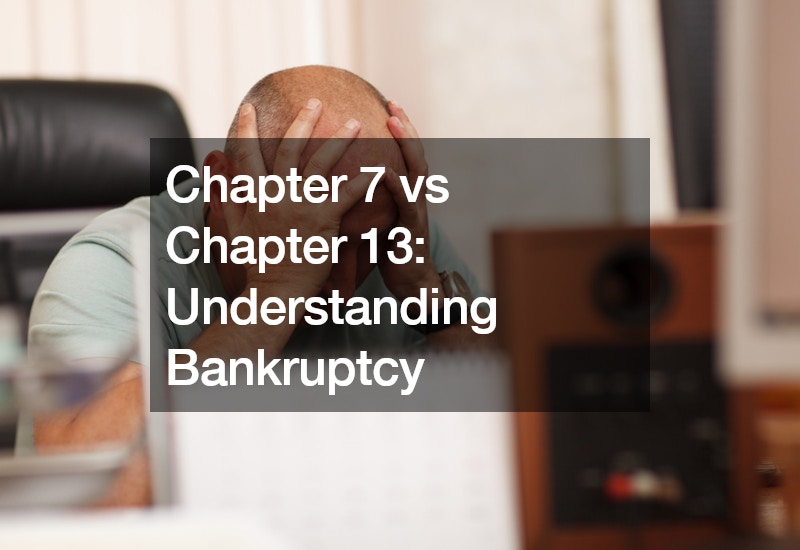Debt can feel overwhelming, and sometimes, bankruptcy becomes a necessary option. In the United States, there are two main types of personal bankruptcy: Chapter 7 and Chapter 13. Each offers a different approach to resolving debt, and understanding the key distinctions is crucial for making an informed decision.
Chapter 7, often referred to as “liquidation bankruptcy,” involves selling off assets to repay creditors. Most unsecured debts, like medical bills and credit cards, are discharged after the sale of assets.
However, there are exceptions. Student loans, child support, and certain taxes remain your responsibility.
This option can be appealing for those with minimal assets and overwhelming unsecured debt. However, it’s important to be aware of the impact on your credit score. Chapter 7 stays on your credit report for 10 years, making it difficult to obtain loans or credit cards during that time.
Chapter 13, on the other hand, is a form of “debt reorganization.” Here, you propose a repayment plan to a court-appointed trustee, typically lasting 3-5 years. During this period, you make monthly payments that are distributed to your creditors. If you successfully complete the plan, remaining unsecured debt is discharged.
This option is ideal for individuals who want to keep their assets, like a car or house. Chapter 13 allows you to catch up on missed mortgage or car payments and potentially negotiate reduced balances with creditors. Bankruptcy lawyers can be invaluable in crafting a realistic repayment plan and negotiating with creditors on your behalf.
The decision between Chapter 7 and Chapter 13 hinges on your specific financial situation. Consulting with bankruptcy lawyers is crucial to determine which option best suits your needs. They can guide you through the complex legal process, ensure you meet eligibility requirements, and maximize your chances of a successful outcome.
Remember, bankruptcy is a serious legal matter, but it can also be a fresh start. By understanding the differences between Chapter 7 and Chapter 13, you can make an informed decision about your financial future.
.



